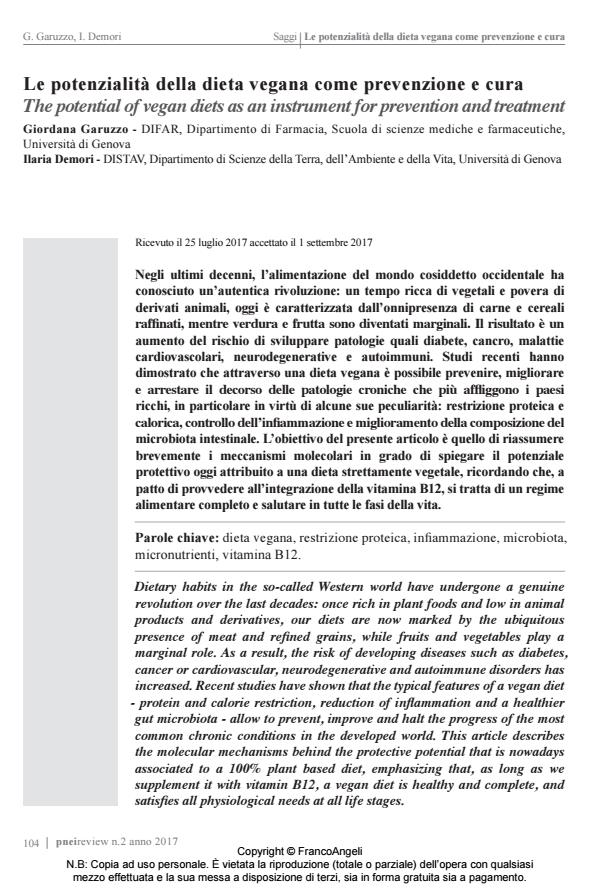The potential of vegan diets as an instrument for prevention and treatment
Journal title PNEI REVIEW
Author/s Giordana Garuzzo, Ilaria Demori
Publishing Year 2017 Issue 2017/2
Language Italian Pages 11 P. 104-114 File size 1117 KB
DOI 10.3280/PNEI2017-002010
DOI is like a bar code for intellectual property: to have more infomation
click here
Below, you can see the article first page
If you want to buy this article in PDF format, you can do it, following the instructions to buy download credits

FrancoAngeli is member of Publishers International Linking Association, Inc (PILA), a not-for-profit association which run the CrossRef service enabling links to and from online scholarly content.
Dietary habits in the so-called Western world have undergone a genuine revolution over the last decades: once rich in plant foods and low in animal products and derivatives, our diets are now marked by the ubiquitous presence of meat and refi ned grains, while fruits and vegetables play a marginal role. As a result, the risk of developing diseases such as diabetes, cancer or cardiovascular, neurodegenerative and autoimmune disorders has increased. Recent studies have shown that the typical features of a vegan diet - protein and calorie restriction, reduction of inflammation and a healthier gut microbiota - allow to prevent, improve and halt the progress of the most common chronic conditions in the developed world. This article describes the molecular mechanisms behind the protective potential that is nowadays associated to a 100% plant based diet, emphasizing that, as long as we supplement it with vitamin B12, a vegan diet is healthy and complete, and satisfies all physiological needs at all life stages.
Keywords: Vegan diet, protein restriction, inflammation, microbiota, micronutrients, vitamin B12.
Giordana Garuzzo, Ilaria Demori, Le potenzialità della dieta vegana come prevenzione e cura in "PNEI REVIEW" 2/2017, pp 104-114, DOI: 10.3280/PNEI2017-002010